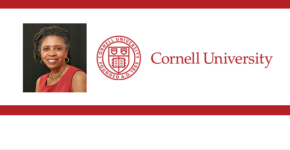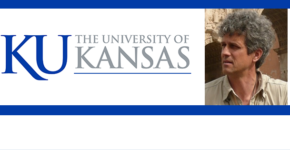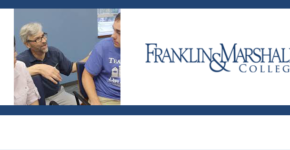Category: Education
-

Martin Krieger, University of Southern California – Academic Roadkill
No one wants to become roadkill. Martin Krieger, professor of planning at the University of Southern California, discusses how to stay out of the path of danger in the academic world. Martin Krieger’s current work is on defense and military policy, and on uncertainty and ambiguity. He has done social-science informed aural and photographic documentation…
-

Dwight DeWerth-Pallmeyer, Widener University – Smartphones in the Classroom
Students don’t like putting away their cellphones – even in class. Dwight DeWerth-Pallmeyer, associate professor of communication studies at Widener University, details one way to get students thinking about how much they use their devices and how this could help the classroom overall. Dwight DeWerth-Pallmeyer is an Associate Professor of Communication Studies at Widener University. …
-

Yellowlees Douglas, University of Florida – What You Read Influences How You Write
You write what you read. Yellowlees Douglas, associate professor at the center for management communication at the University of Florida, examines if reading more polished writing can make you a better writer. Dr. Yellowlees Douglas is an associate professor of management communication in the Hough Graduate School of Business at the University of Florida. In…
-

Kelly Purtell, The Ohio State University – Mixed-Age Children in Pre-School
Learning with younger classmates may not be helping some preschool children. Kelly Purtell, assistant professor in the Department of Human Sciences at The Ohio State University, explores whether mixed age groups can hinder older children. Purtell’s research focuses on understanding how contextual factors shape health and development among low-income children and adolescents, and on how…
-

Lorraine Maxwell, Cornell University – Schools Falling Apart
The condition of a school’s building could resemble the learning done within it. Lorraine Maxwell, associate professor in the department of design & environmental analysis at Cornell University, explores if a rundown school could doom a child’s education from the beginning. I joined the Design and Environmental Analysis faculty in 1993 as my first full…
-

Mary Caton-Rosser, Black Hills State University – Use of Online Technologies in Higher Education
The flow of communication in classrooms is faster than ever before. Mary Caton-Rosser, Associate Professor of Mass Communication at Black Hills State University, explores what this means for students and professors as they adapt to a changing world. Mary Caton-Rosser (PhD, University of Colorado) is Associate Professor of Mass Communication at Black Hills State University…
-

Wayne Gray, Rensselaer Polytechnic Institute – Extreme Experts
What is an extreme expert? Wayne Gray, professor of cognitive science at Rensselaer Polytechnic Institute, looks at this group and their exceptional capabilities. Professor Gray earned his Ph.D. from U. C. Berkeley in 1979. His first position was with the U. S. Army Research Institute where he worked on tactical team training (at the Monterey…
-

Anthony Corbeill, University of Kansas – Gender in Rome
Why are some objects described as feminine and other masculine? Anthony Corbeill, Professor of Classics at the University of Kansas, delves into this question and whether things are changing. Anthony Corbeill is a Professor of Classics at the University of Kansas. His research focuses on classical languages, Roman literature and cultural history. He has published…
-

Jeff Nesteruk, Franklin & Marshall College – Humanities and Business
What do the humanities have to teach the business sector? Jeff Nesteruk, Professor of Legal Studies at Franklin & Marshall College, describes the power of stories and why businesses need to tell better ones to survive in today’s environment. Jeffrey Nesteruk is a Professor of Legal Studies at Franklin & Marshall College. A graduate of…

